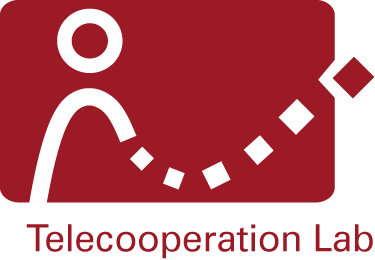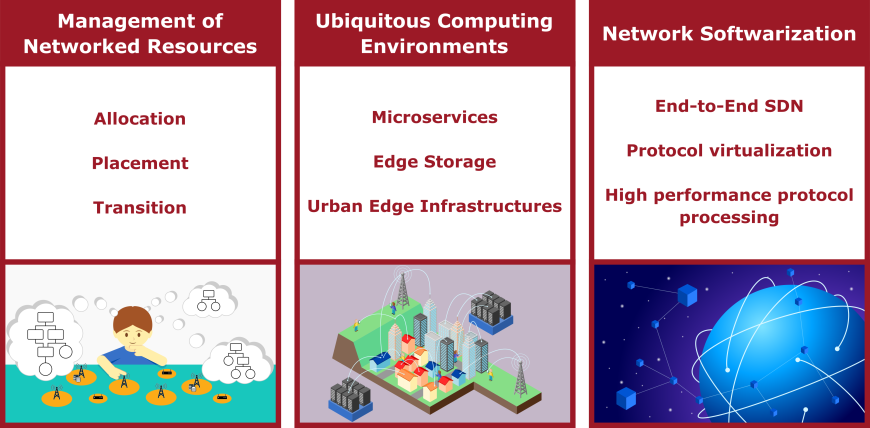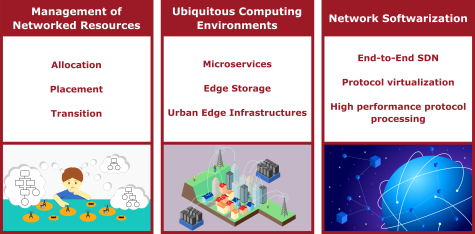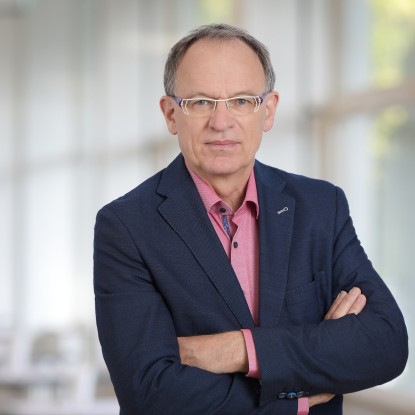The Smart Ubiquitous Networks (SUN) group researches networked systems and aims at developing algorithms and mechanisms for topology and protocol adaptation, task placement, and resource allocation, including transitions between subsequent optimal solutions. One core objective is to optimize the performance of networks and distributed systems for data-centric applications that rely on stream processing or real-time data analytics.
Networks in Smart Cities are our most prominent target domain. As a response to virtually unmanageable growth and unprecedented challenges, more and more cities are transformed into digitally interwoven human-device ecosystems. As part of this transition, large scale data are continuously generated, e.g., from environment sensors and mobile devices, and must be processed under increasingly tight real-time constraints to render the much-desired intelligent behavior of the smart city ecosystem.
Our research is divided into three main areas Management of Networked Resources, Ubiquitous Computing Environments and Network Softwarization and involves:
- Things. We work with and on things to capture data at scale. From tiny sensors to powerful smartphones, we try to collect data in high quantity and quality. Example research questions are calibration, power efficiency, participatory sensing and incentive systems.
- Network Infrastructure. Data at scale requires networks at scale. We see different challenges in future networks spanning from “just” transmitting data most efficiently to more advanced networking concepts, e.g., moving processing to the edge/in-network or services to the users – also called edge computing. Our research currently focuses on developing a unified computing framework, for scalable and efficient edge resource management where concepts such as microservice and unikernel are explored.
- Computing Infrastructure. Leveraging resources in the entire device-edge-cloud continuum, we develop provisioning and management mechanisms to make those resources accessible. With an increasing mobility in both devices and data, intelligent migration and caching mechanisms for data and computations are the future challenges in this domain.
- Smart Services. Using advanced machine learning concepts, we want to offer the next generation of services on top of data and network. We are currently mostly focused on prediction. Current examples from our research are failure or behavior prediction. For smart services, we also research nowcasting and event detection on social media data.
| Photo | Name | Working area(s) | Contact |
|---|---|---|---|
| Area Head | |||

| Florian Brandherm | Area Head | brandherm@tk.tu-... +49 6151 16-23196 S2|02 A124 |
| Research Associates | |||

| Uwe Gropengießer | Research Associate | gropengiesser@tk.tu-... +49 6151 16-23203 S2|02 A108 |





